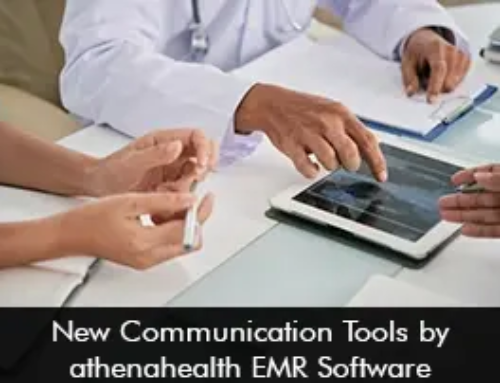COVID-19 has taken its toll over the best healthcare systems of the world collapsing them. Doctors, nurses, and frontline workers are battling against the pandemic by making sure they get adequate protective gear and making space available for COVID-19 patients in the hospital. With rapid changes in the environment, we need to consider the effects of the virus on the existing Electronic Health Records (EHR) software system. It makes sense to make certain upgrades to make the software workable in a testing situation like this.
Let’s look at some of the ways in which you can be sure that your EHR software is prepared for the COVID-19 pandemic.
- Make Sure to Use the New Codes – It is critical to use the new ICD-10 and CPT codes. A lot of EHR Software are struggling to get these new codes. If the new codes are unavailable then in the meantime practices should get another code to use for the virus. ‘Unspecified coronavirus infection, B34.2’, is the code which practices are using for encoding encounters related to the virus.
- Update Your EHR System Rapidly – Clinical staff will need to make sure that their EHR software system can facilitate coronavirus related documentation and charting. These updates should be evaluated carefully and then implemented rapidly as the pandemic is spreading like wildfire. The IT staff should be trained to make sure of the right implementation round the clock and take care of any technical issues.
- Telemedicine – Ready EHR Software – Many EHR vendors offer telemedicine platform to its users. Make sure to use the telemedicine capabilities of your EHR to allow providers to extend care remotely through virtual sessions between doctors and patients. Telemedicine is critical during the COVID-19 crisis to minimize patient visits in the hospitals and help to identify patients with potential symptoms of the virus.
- Testing Your EHR Software – To make sure your EHR provides functionality in the new operating workflows it is important to consistently test your software. Healthcare systems run a lot of manual testing and there are some great tools available to make sure the software system works well under these unique circumstances. Some vendors such as Epic EMR Software and Cerner PowerChart Ambulatory EMR Software are creating EHR tools that are simple to use. So clinicians don’t require to be a coder and don’t need a testing background. Practices are trying to test as to how the new COVID-19 codes and data will fit into their existing workflows.
Resources:
UW Medicine CIO’s advice: Prepping IT systems for COVID-19. (2020). Retrieved 29 April 2020, from https://www.healthcareitnews.com/blog/uw-medicine-cios-advice-prepping-it-systems-covid-19
Joyce Frieden. (2020). Is Your EHR Ready for COVID-19?. Retrieved 29 April 2020, from https://www.medpagetoday.com/infectiousdisease/covid19/85538
Covid-19: a huge stress test for electronic health record systems – STAT. (2020). Retrieved 29 April 2020, from https://www.statnews.com/2020/03/12/covid-19-huge-stress-test-electronic-health-record-systems/








